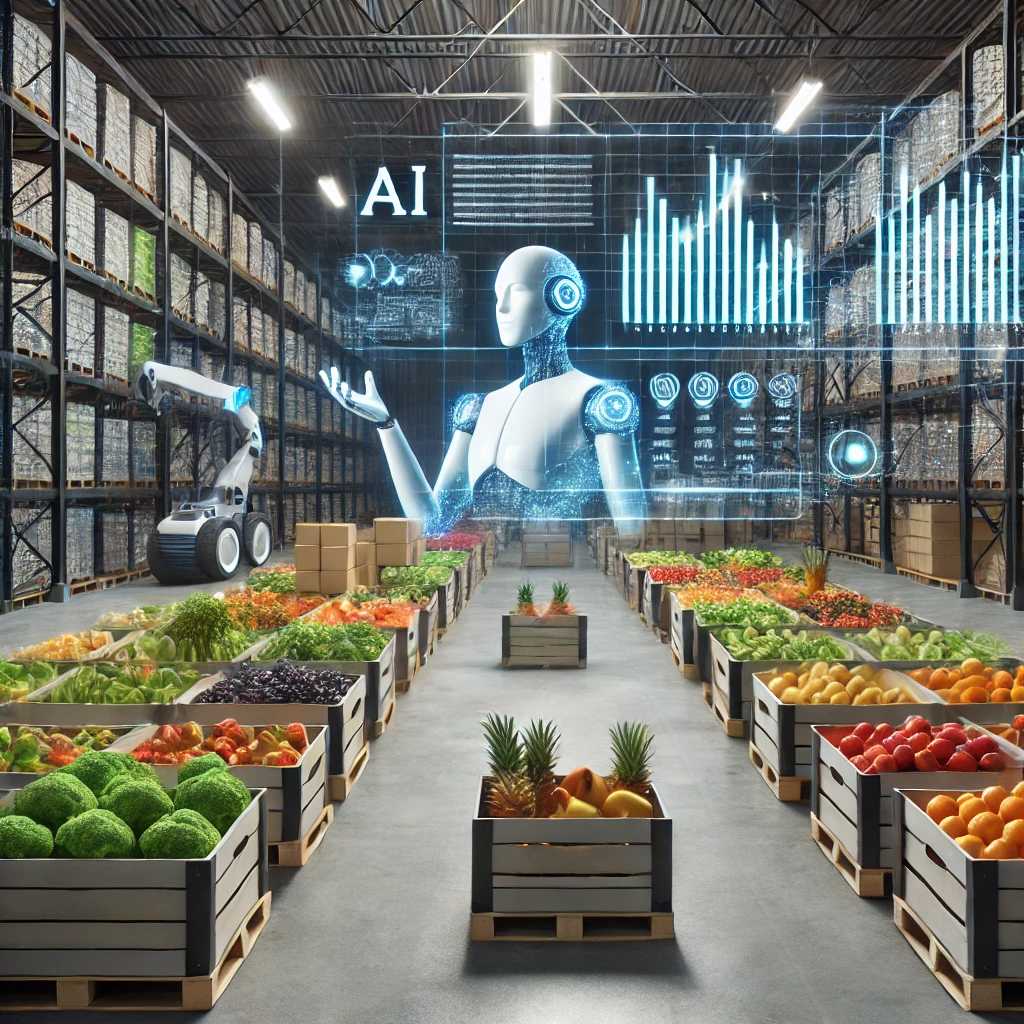The Role of Intelligent Automation in Reducing Food Waste
Food waste is a global challenge, with millions of tons wasted each year, contributing to economic losses and environmental damage. However, the integration of intelligent automation—a combination of artificial intelligence (AI), robotic process automation (RPA), and other emerging technologies—is transforming how businesses can tackle this issue. From optimizing supply chains to predicting demand, intelligent automation offers powerful solutions that help reduce food waste while promoting sustainability.
1. Predictive Analytics: Preventing Overproduction
One of the key causes of food waste is overproduction, often driven by inaccurate demand forecasting. Traditional forecasting methods are prone to errors, leading businesses to produce more food than needed, which ends up being discarded. Intelligent automation, powered by AI, uses predictive analytics to accurately assess market demand by analyzing data such as consumer behavior, sales trends, and external factors like weather.
For instance, a grocery chain using AI-driven forecasting tools can reduce the likelihood of ordering too much of a particular item, minimizing spoilage and loss. With real-time monitoring, businesses can adjust their supply chains dynamically to prevent waste before it happens.
2. Supply Chain Optimization: Maximizing Freshness
Food waste doesn’t just occur at the consumer level—it happens all along the supply chain, from farm to fork. Intelligent automation can revolutionize how food moves through the supply chain by optimizing inventory management and logistics. With automation tools, businesses can monitor the freshness and quality of perishable goods in real time, ensuring they reach their destination in optimal condition.
Smart sensors and IoT-enabled systems can track the storage conditions of food, alerting supply chain managers when temperatures or humidity levels are outside of safe ranges. This proactive approach reduces spoilage and ensures food remains fresh, ultimately leading to less waste.
3. Automated Food Redistribution: Fighting Hunger
Not all surplus food needs to go to waste. Intelligent automation also plays a crucial role in redistributing excess food to where it’s needed most. Many companies now use automated platforms to identify surplus items and divert them to food banks, shelters, or other community organizations.
By using AI-powered systems to track and manage surplus food, businesses can more efficiently channel these resources to prevent waste while helping those in need. This not only combats food waste but also addresses hunger and food insecurity.
4. Smart Packaging and Monitoring: Extending Shelf Life
Smart packaging is another area where intelligent automation is making an impact. Packaging with built-in sensors can detect the freshness and ripeness of products, providing real-time data about when items are likely to expire. This technology allows businesses and consumers to make more informed decisions about when to use or sell products, reducing waste.
For example, a smart package of berries could notify a retailer that the product is approaching its peak freshness, prompting the store to promote it at a discount before it goes bad.
5. Automated Waste Tracking: Data-Driven Improvements
Finally, intelligent automation enables businesses to track and analyze waste more effectively. By collecting and processing data on where and why waste occurs, companies can identify problem areas and implement targeted solutions. Whether it’s identifying inefficiencies in storage practices or discovering patterns of overproduction, this data-driven approach empowers businesses to reduce waste at its source.
Automation tools can even suggest improvements, such as adjusting procurement cycles or optimizing storage methods, to further minimize waste.
The Sustainability Benefits of Reducing Food Waste
Implementing intelligent automation to reduce food waste doesn’t just lead to cost savings for businesses—it also has significant environmental benefits. Less food waste means less strain on natural resources such as water, land, and energy. Moreover, reducing waste helps lower greenhouse gas emissions from food decomposition in landfills, contributing to a healthier planet.
As the world looks for ways to combat food waste and improve sustainability, intelligent automation offers practical and scalable solutions. From predictive analytics to automated redistribution, these technologies are helping businesses revolutionize their approach to food waste management. By embracing these innovations, companies can not only cut costs and improve efficiency but also make a meaningful impact on the environment and society.
Intelligent automation is more than just a technological advancement—it’s a necessary tool for building a sustainable future where food waste is minimized, and resources are maximized.

